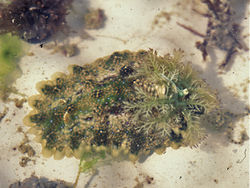Difference between revisions of "Ceratosoma miamirana"
m (Imported from ZooKeys) |
m (1 revision) |
(No difference)
| |
Latest revision as of 16:03, 22 May 2012
| Notice: | This page is derived from the original publication listed below, whose author(s) should always be credited. Further contributors may edit and improve the content of this page and, consequently, need to be credited as well (see page history). Any assessment of factual correctness requires a careful review of the original article as well as of subsequent contributions.
If you are uncertain whether your planned contribution is correct or not, we suggest that you use the associated discussion page instead of editing the page directly. This page should be cited as follows (rationale):
Citation formats to copy and paste
BibTeX: @article{Yonow2012ZooKeys197, RIS/ Endnote: TY - JOUR Wikipedia/ Citizendium: <ref name="Yonow2012ZooKeys197">{{Citation See also the citation download page at the journal. |
Familia: Chromodorididae
Genus: Ceratosoma
Name
Ceratosoma miamirana (Bergh, 1875) – Wikispecies link – Pensoft Profile
- Fracassa tuberculosa Eliot, 1903b: 371 (Zanzibar).
- Orodoris miamirana. – Vayssière 1912[1]: 25, pl. 5 figs. 71-77, pl. 6 figs. 87, 88 (Djibouti, Gulf of Aden); Yonow 2008[2]: 207 (Red Sea).
- Ceratosoma miamirana. – Valdés and Gosliner 1999[3]: 37, figs. 1D, 4, 5 (Japan, Philippines, Papua New Guinea); Debelius and Kuiter 2007: 103 (Maldives).
Material
Zanzibar: 36 × 34 mm pres., in Sargassum off reef crest, Matemwe Lagoon, 01 March 1995, leg. MD Richmond (examined 1995: dorsum cream with rusty/orange-brown patches and pigment in creases, knobbly; rhinophores very close together, located far anteriorly; gills located far posteriorly, pocket with six lappets; ventrally with bright rusty ‘rings’ of pigment on hyponotum) (examined 1998: no pigment left except faint marks in creases and tucked-in gills; rings still bright on hyponotum). – Tanzania: photograph of two individuals, Mafia Island, shallow water, 31 December 2003 and 16 October 2005, A de Villiers. – Maldives: 65 mm (47 × 44 mm preserved, MDV/AB/96/19), 13 m depth, Yacht Tila, South Malé Atoll, 09 May 1996 (examined 1998: very well extended, very soft, completely bleached: no marks or colour left; morphology of foot, oral tentacles, and dorsum as above), leg. RC Anderson & SG Buttress. – La Réunion: photographs of several individuals http://seaslugs.free.fr/nudibranche/a_intro.htm.
Description/Distribution
Recognised by its oval shape with scalloped margin, and blurred green, beige, and blue colour pattern. Ventrally, green reticulations and ocelli located in junction between foot and mantle are distinctive. Widespread if infrequently recorded in the tropical Indo-West Pacific.
Taxon Treatment
- Yonow, N; 2012: Opisthobranchs from the western Indian Ocean, with descriptions of two new species and ten new records (Mollusca, Gastropoda) ZooKeys, 197: 1-130. doi
Other References
- ↑ Vayssière A (1912) Recherches zoologiques et anatomiques sur les Opisthobranches de la Mer Rouge et du Golfe d’Aden, partie 2. Annales du Faculté des Sciences de l’Université de Marseille 20: 5-157.
- ↑ Yonow N (2008) Sea Slugs of the Red Sea. Pensoft Publishers, Sofia-Moscow, 304 pp.
- ↑ Valdés A, Gosliner T (1999) Reassessment of the systematic status of Miamira Bergh, 1875 and Orodoris Bergh, 1875 (Nudibranchia; Chromodorididae) in light of phylogenetic analysis. Journal Molluscan Studies 65: 33–45. http://www.mendeley.com/research/reassessment-systematic-status-miamira-bergh-1875-orodoris-bergh-1875-nudibranchia-chromodorididae-light-phylogenetic-analysis-1/, doi: 10.1093/mollus/65.1.33
Images
|
